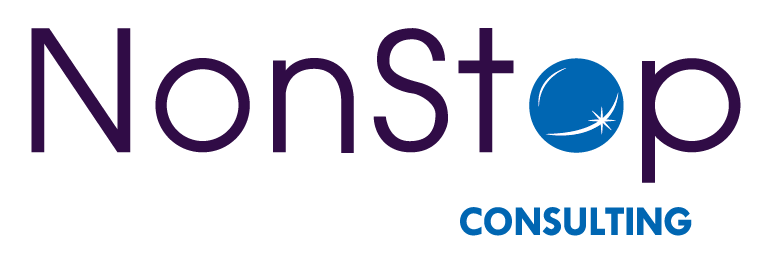Attracting and retaining top talent continues to be a significant challenge for employers. As the dynamics of work evolve and the expectations of job seekers change, it’s crucial for employers to understand what candidates value most in potential employers. By aligning talent acquisition strategies with these preferences, organisations can enhance their appeal to top talent and secure the best candidates for their teams.
So, what do job seekers value most in potential employers? Let’s explore the key factors that play a pivotal role in attracting top talent and provide practical tips for employers to improve talent acquisition strategies.
Competitive Compensation
When it comes to attracting talent, competitive compensation remains a top priority for job seekers. According to our own research, about two thirds of job seekers consider salary and compensation a critical factor when evaluating job opportunities. It’s therefore essential for employers to offer competitive salaries and benefits packages that align with industry standards and the candidate’s qualifications.
Practical Tip: Regularly benchmark your salary offerings against industry standards to ensure you are competitive. Consider offering performance-based incentives, bonuses, and comprehensive benefits packages to attract top talent.
Company Culture and Values
Company culture has emerged as a significant factor in job seekers‘ decision-making processes. Candidates want to work for organisations that align with their values and provide a positive work environment. A strong company culture fosters employee engagement, job satisfaction, and retention.
Practical Tip: Develop a compelling employer brand that highlights your company’s culture and values. Showcase your commitment to diversity, equity, and inclusion initiatives. Encourage employee testimonials and stories to provide authentic insights into your workplace culture.
Opportunities for Growth and Development
Professional growth and development are crucial considerations for job seekers. While there does currently seem to be some hesitation amongst employees generally to make a career move, LinkedIn’s Global Talent Trends report of a few years ago 94% of employees would stay with their current employer longer if they invested in their career development. Employers should therefore emphasise opportunities for skill development, career progression, and continuous learning.
Practical Tip: Implement career development programs, mentorship opportunities, and tuition reimbursement to demonstrate your commitment to employee growth. Communicate clear paths for career advancement within your organization.
Work-Life Balance
A healthy work-life balance is a non-negotiable factor for many job seekers. The COVID-19 pandemic has further highlighted the importance of flexibility and remote work options. Employers who offer flexible work arrangements and prioritise work-life balance are more likely to attract and retain top talent.
Practical Tip: Offer flexible work arrangements, remote work options, and paid time off policies that support work-life balance. Promote a culture of trust and outcomes rather than micromanagement.
Strong Leadership and Management
Effective leadership and management practices are essential for creating a positive workplace experience. Job seekers look for organisations with leaders who inspire, communicate transparently, and value employee well-being. Poor leadership can drive talent away. While you might think this level of detail isn’t available externally, websites like Glassdoor can provide insight for a jobseeker into a company’s leadership.
Practical Tip: Invest in leadership development programs to cultivate strong managers. Encourage open communication channels and ensure leadership teams prioritise employee engagement and feedback. In addition, think about how you can make your company’s leadership values can be shown externally. This could be through thought leadership pieces on LinkedIn, for example.
Job Security and Stability
While job seekers value opportunities for growth, they also seek job security and stability. The uncertainty brought about by economic fluctuations and the pandemic has made job security a significant concern for candidates.
Practical Tip: Showcase your organisation’s stability and commitment to long-term success. Share your business’s track record of resilience during challenging times. Offer clear employment contracts and transparent communication regarding job stability.
Reputation and Brand Recognition
A strong employer reputation and brand recognition can be a significant advantage in attracting top talent. Job seekers often research companies online and rely on reviews, ratings, and industry reputation when making decisions.
Practical Tip: Invest in online employer branding by actively managing your company’s presence on review websites like Glassdoor and Indeed. Respond to reviews professionally and address concerns to improve your reputation. Highlight awards, accolades, and industry recognitions to boost your brand.
Inclusive Hiring Practices
Diversity and inclusion have become central to modern workforce expectations. Job seekers increasingly prioritise employers with inclusive hiring practices that promote diversity in all aspects of the organisation.
Practical Tip: Develop and implement diversity and inclusion initiatives that go beyond tokenism. Foster a diverse talent pipeline, ensure unbiased hiring processes, and provide equal opportunities for all candidates.
Transparency and Communication
Transparent communication throughout the recruitment process is essential. Job seekers value employers who provide clear expectations, timelines, and feedback during the application and interview stages.
Practical Tip: Create a transparent and streamlined recruitment process. Communicate regularly with candidates, offering constructive feedback and realistic timelines. A positive candidate experience reflects well on your organisation.
Social Responsibility and Sustainability
Many job seekers are passionate about working for socially responsible and sustainable organisations. Candidates want to align their careers with companies that contribute positively to society and the environment.
Practical Tip: Showcase your commitment to corporate social responsibility and sustainability efforts. Highlight your philanthropic initiatives, environmentally friendly practices, and community involvement.
In conclusion, to improve talent acquisition strategies, employers should focus on aligning their practices with the preferences listed above. By offering competitive compensation packages, fostering a positive company culture, providing opportunities for growth, and promoting transparency and inclusion, organisations can enhance their appeal to job seekers and secure the best talent for their teams.
In today’s world, it’s not just about what you can offer candidates; it’s about how well you can meet their expectations. By implementing these practical tips, employers can position themselves as attractive destinations for top talent, ensuring long-term success and growth for their organisations.





